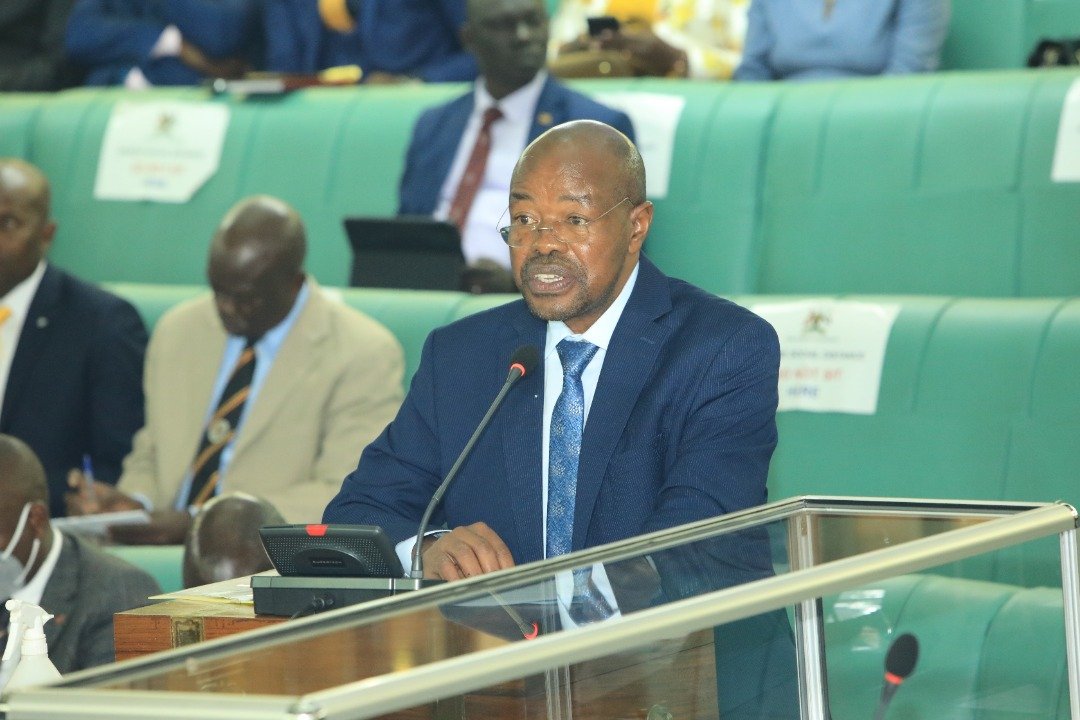Parliament has approved another request by the Government to borrow up to US$331.5 million approximately Shillings 1.242 trillion from the International Development Association– IDA of the World Bank Group to support the electricity access scale-up project.
The legislators passed the unanimous resolution following a motion moved by the Minister of State for Finance, Planning and Economic Development Amos Lugolobi during a plenary chaired by Speaker Anita Among on Tuesday.
This came five days after the House considered an earlier request by the Government to borrow up to USD 140 million approximately Shillings 523.467 billion from the IDA to finance the Digital Acceleration Project-UDAP.
Lugolobi said that the Government approved a 10-year Electricity Connections Policy – ECP to increase the number of connections made annually from the current average of 70,000 in 2018 to 300,000 connections on the main grid by 500MW by 2027.
Key to the delivery of this objective, which will be implemented by the Ministry of Energy and Mineral Development, the Minister pointed out the provision of free single-phase electricity connections to houses and business premises including industrial parks that are within 90 meters of a low-voltage electricity pole to allow for no-pole and single-pole service connections.
The electricity scale-up project aligns with the National Development Plan (NDP) III, and Uganda Vision 2040. It is expected to connect 1,073,500 people to the national grid by 2030 by providing adequate, affordable, clean, and reliable energy for sustainable socio-economic growth and development.
Medard Sseggona Lubega, the Busiro County East Constituency Member of Parliament who represented the Leader of Opposition in Parliament, Mathias Mpuuga supported the motion saying the concessional loan accompanied by a grant is key to enhancing access to electricity and mitigating the climate change crisis.
Notably, Speaker Among did not allow further debate on the motion saying the loan that has a maturity period of 38 years, a six-year grace period and 32 years repayment period is favorable for the country.
The scope of works comprises the construction of 2,900km of medium voltage (33 and 11 kV); the construction of 3,100 km of low voltage network; installation of 115,000 off-grid solar systems; 5,000 commercial enterprises to acquire Solar Systems; and distribution power networks to five industrial parks in Moroto, Soroti, Masaka, Kasese, and Koboko.
Out of the 1,073,500 grid connections to be achieved by the project, 497,106 are to be in the Central region; 219,441 in the Western, 216,616 in the Eastern region, and 140,337 in the Northern region.
It will also benefit Refugee Hosting Districts (RHDs) namely: Adjumani, Isingiro, Kamwenge, Kikuube, Kiryandongo, Koboko, Kyegegwa, Lamwo, Obongi, Madi Okollo, Terrego, and Yumbe.
Biomass is Uganda’s predominant cooking fuel with an estimated 85 percent using firewood and 13 percent using charcoal, mainly in the urban and peri-urban areas.
Both charcoal and firewood are obtained by cutting forest trees, which have significantly contributed to the reduction in forest cover.
The Uganda Bureau of Statistics – UBOS reveals that the country’s per capita electricity consumption 100kwh per capita, which is far below the sub-Saharan average of 552 kWh per capita and the World average of 2,975 kWh per capita largely due to high electricity tariffs, high connection costs, high energy losses, limited investments, and low power supply quality and reliability.
Consequently, the report indicated that forest cover in the country has reduced by 67 percent over the last thirty (30) years from 24 percent in 1990 to eight percent in 2019.
Moreover, Exposure to household air pollution from burning biomass fuels for cooking is known to significantly affect the health of over 20 million Ugandans and cause over 13,000 deaths every year.
The total estimated project cost and financing for the project are about 2.390 trillion Shillings, including the 1.242 trillion Shillings’ IDA credit representing 52 percent, and grants worth 1.036 trillion Shillings (43 percent).
Total Public Debt for Uganda currently stands at 78.799 trillion as of June 2022, an increase of 13 percent from 69.513 trillion Shillings at the end of June 2021. The debt stock consists of 48.136 trillion Shillings as external debt and 30.662 trillion Shillings as domestic debt.

















